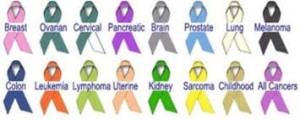 This year alone, 238,000 men will be diagnosed with new cases of prostate cancer, the most common incidence of the disease. More than 234,580 men and women will learn they have breast cancer, the second most common today, according to the National Cancer Institute.
This year alone, 238,000 men will be diagnosed with new cases of prostate cancer, the most common incidence of the disease. More than 234,580 men and women will learn they have breast cancer, the second most common today, according to the National Cancer Institute.
All told, about 13.7 million Americans are living with cancer or a history of cancer.*
Chances are, you know one or more of them.
“Friends, family, co-workers – they can all play an important role in helping a cancer patient’s recovery simply by providing emotional support,” says pioneering cancer psychotherapist Dr. Niki Barr, author of “Emotional Wellness, The Other Half of Treating Cancer,” (canceremotionalwellbeing.com).
After a diagnosis of cancer, people have a greater need for social support, which has been shown to influence health outcomes, according to a National Institutes of Health report. Of the nine types of social support, the report says emotional support is among the most important.
“Even if you’re not among the person’s closest friends or family, you can help far more than you imagine simply by being encouraging and supportive,” says Barr, who works exclusively with cancer patients and their loved ones.
“I understand people don’t always know what to say to someone who’s just been diagnosed or is in the midst of treatments and yes, sometimes they do say the wrong thing,” Barr says. “I remind my patients often to refuse to listen to cancer ‘horror stories,’ so please, don’t tell those!”
While everyone is different, Barr says that she’s found a few things her patients consistently say benefit them:
• Sometimes saying nothing at all says everything. If your friend or loved one wants to talk about her treatments, complain about his situation, or not talk at all, being a good listener or simply a quiet presence speaks volumes. When a person complains, many of us jump to “help” by suggesting solutions. That’s likely not what your friend or loved one is looking for. As my patients have said time and time again, sometimes they just want to get it all off their chest. An empathetic listener is all the help they need.
• Make your offer of help specific. “Call me if you need anything at all,” puts the burden on your loved one – who already carries a tremendous burden! Instead, you might offer to make dinner for her family on Wednesday night and ask what meal everyone enjoys. Or volunteer to drive him to his doctor appointment on Monday afternoon. This makes it easy for your friend to politely accept or decline your offer, and it ensures you provide the assistance you feel comfortable providing.
• Not sure what to talk about? Follow his lead. Some days, my patients want to talk only about their illness, the treatment they’re undergoing, and how they feel. Other days, they want to talk about anything BUT cancer. We all have days when we’re immersed in our own lives and other days when we want to be distracted – or to just feel normal.
• If you’re not sure what to say, err on the side of being positive. Don’t say what you don’t know – for instance, you don’t know that everything is going to be just fine. But if you admire your loved one’s strength or sense of humor, if your friend’s attitude inspires you, tell them so. We all benefit from hearing a sincere compliment.
When a person who’s going through what may be the most difficult, stressful event of their lives knows that you care, it makes a difference, Barr says.
“If you’re truly at a loss for words, it never hurts to simply say, ‘I’m thinking about you.” *as of Jan. 1, 2012; National Cancer Institute




